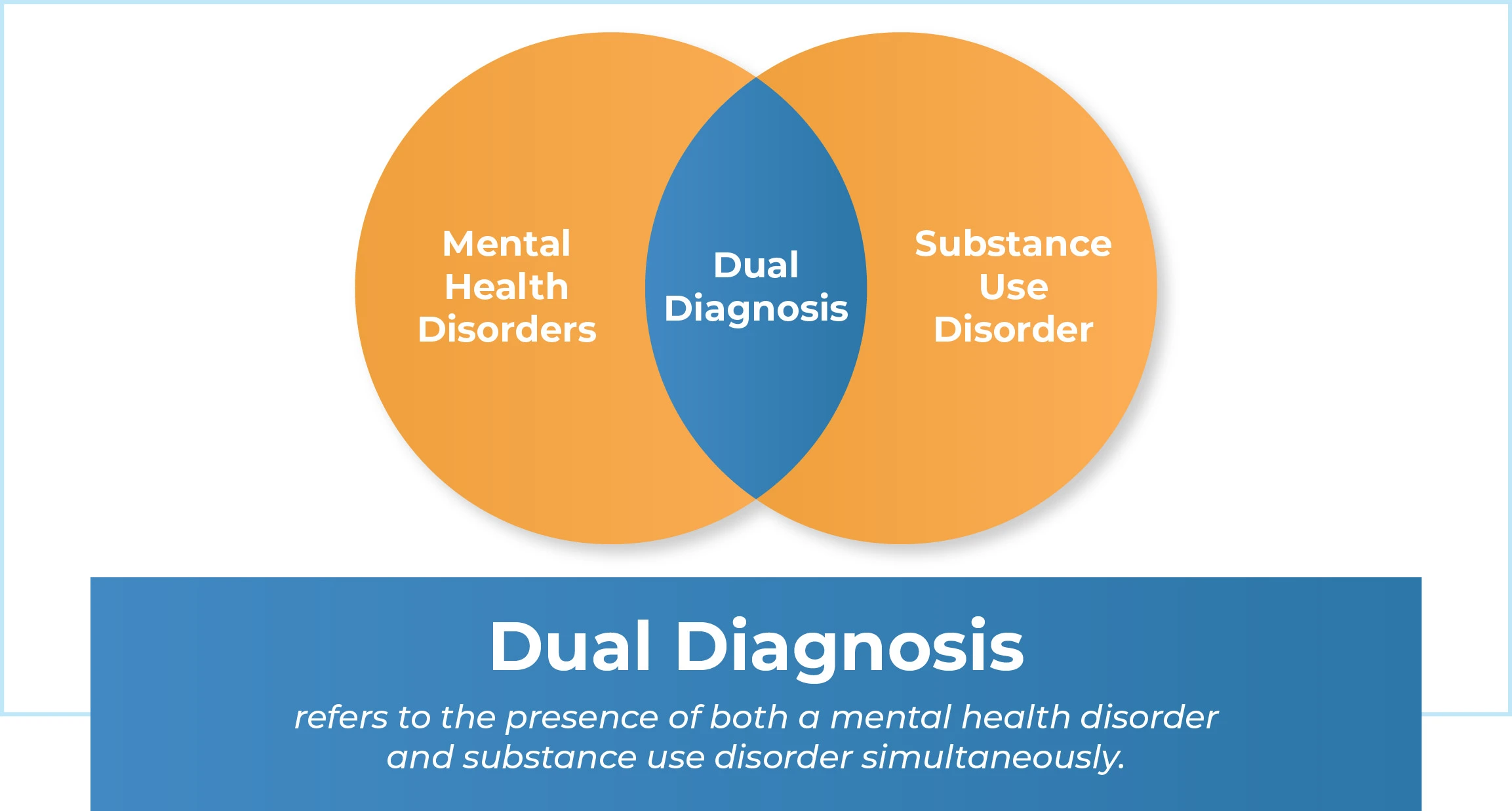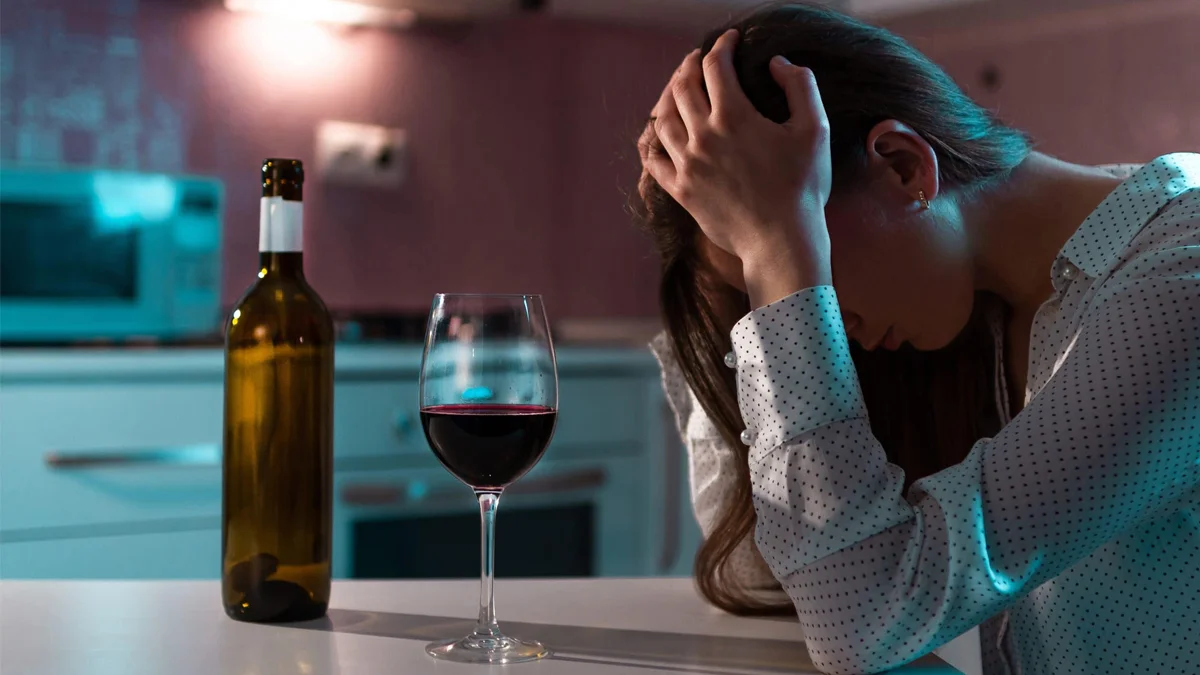
Cheers to Sobriety: Fun Without Alcohol
Learn how to have fun without alcohol with the tips from The Recovery Team-Newton.

Addiction and mental health disorders often go hand in hand. When individuals are struggling with a mental health condition, they commonly turn to substance use and eventually become addicted. It is also common for individuals battling an addiction to develop mental health disorders due to substance use. This is what is called a dual diagnosis.
The Recovery Team offers comprehensive and individual dual diagnosis programs addressing addiction and mental health issues. Our facility provides evidence-based therapeutic treatment, medication management, support groups, and holistic therapies.
We understand seeking treatment for addiction or mental health can feel overwhelming. Our experienced staff is dedicated to providing the compassion and guidance necessary for a smooth and successful recovery.
A dual diagnosis means that a patient struggles with both a substance use disorder and a mental health condition such as depression, anxiety, or post-traumatic stress disorder (PTSD). Treating both conditions simultaneously can often be challenging because they overlap and constantly influence each other. At the Recovery Team, we use an integrated treatment model designed to address both addiction and the mental health issues underlying it.
Our facility offers multiple levels of care when it comes to treating co-occurring disorders to meet all our patients’ needs. The most intensive level of care we offer is our inpatient or residential program, where patients receive 24-hour medical supervision, therapy, and medication management. This level of treatment is designed for individuals with severe conditions who require around-the-clock care during treatment.
We also offer more flexible levels of care as patients progress in their recovery journey. These programs include partial hospitalization programs (PHP), intensive outpatient programs (IOP), and our standard outpatient program. These programs are designed to allow patients the flexibility of going to work and school, as well as maintaining other responsibilities while still having the structure and guidance needed for recovery.
When battling a mental health disorder, it is common for people to turn to substance use to alleviate their symptoms. Not only can substance use worsen their mental health condition, but it can also cause them to become addicted to that substance.
Those dealing with an addiction often develop mental health disorders after abusing substances. This can create a never-ending cycle that will only get worse without treatment.
Below are a few of the most common mental health disorders linked to substance abuse:
Individuals with a dual diagnosis are often unaware of their condition. It can be challenging for loved ones to recognize the signs of a co-occurring mental health disorder that requires specialized treatment.
Drug addiction can cause symptoms and behaviors that indicate an underlying mental health problem. This is why a professional must assess their condition and determine the best treatment plan. When individuals quit their substance use, their underlying mental health issues may surface.
Below are a few signs of a dual-diagnosis disorder to watch out for:
Treatment for a dual diagnosis at The Recovery Team will begin with a thorough assessment by one of our experienced professionals to determine an individualized program that meets the specific needs of the patient.
The first step in dual-diagnosis treatment is typically detoxification. Patients will be monitored and supported while going through the process of withdrawing from the substance. While this can be an uncomfortable experience, the medical staff at our facility are dedicated to providing the utmost comfort and support.
Patients will then attend a combination of behavioral therapy sessions designed to help them identify underlying issues and develop strategies for maintaining sobriety. We offer a variety of these behavioral therapies, such as cognitive behavioral therapy, dialectical behavior therapy, and motivational interviewing. Patients will also be provided with medication management by one of our professionals to help address the mental health disorder.
Due to the complexity of a co-occurring disorder, these programs are highly individualized. Treatment plans can vary depending on the type and severity of the addiction and mental health disorder.
Dual Diagnosis requires a comprehensive and integrated approach to treatment. If one disorder gets treated without addressing the other, this can lead to incomplete or ineffective treatment as the two feed into one another.
For example, if an individual with a co-occurring disorder is only treated for their mental health condition and not the addiction, they will go on to continue their substance use and have a higher chance of developing a mental health disorder again. On the other hand, only treating their addiction can cause the untreated mental health to continue to get worse and may cause them to relapse.
By addressing both conditions simultaneously, we can assure patients the best chances of a successful and sustainable recovery.
The Recovery Team offers multiple levels of care, including residential, partial hospitalization, and outpatient programs. Our dedicated team of professionals is here to provide the care, support, and guidance necessary for a sustainable recovery.
If you or a loved one is struggling with an addiction, mental health condition, or co-occurring disorder, call us at (508) 978-2772 to speak with a counselor to get more information about our programs.

Learn how to have fun without alcohol with the tips from The Recovery Team-Newton.

Are you curious about the drug classification of alcohol? The Recovery Team-Newton provides you with the answer.

Get personalized treatment for alcoholism with The Recovery Team-Newton and recover on your own terms.